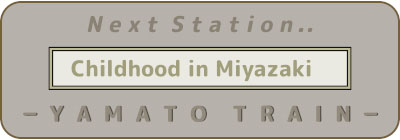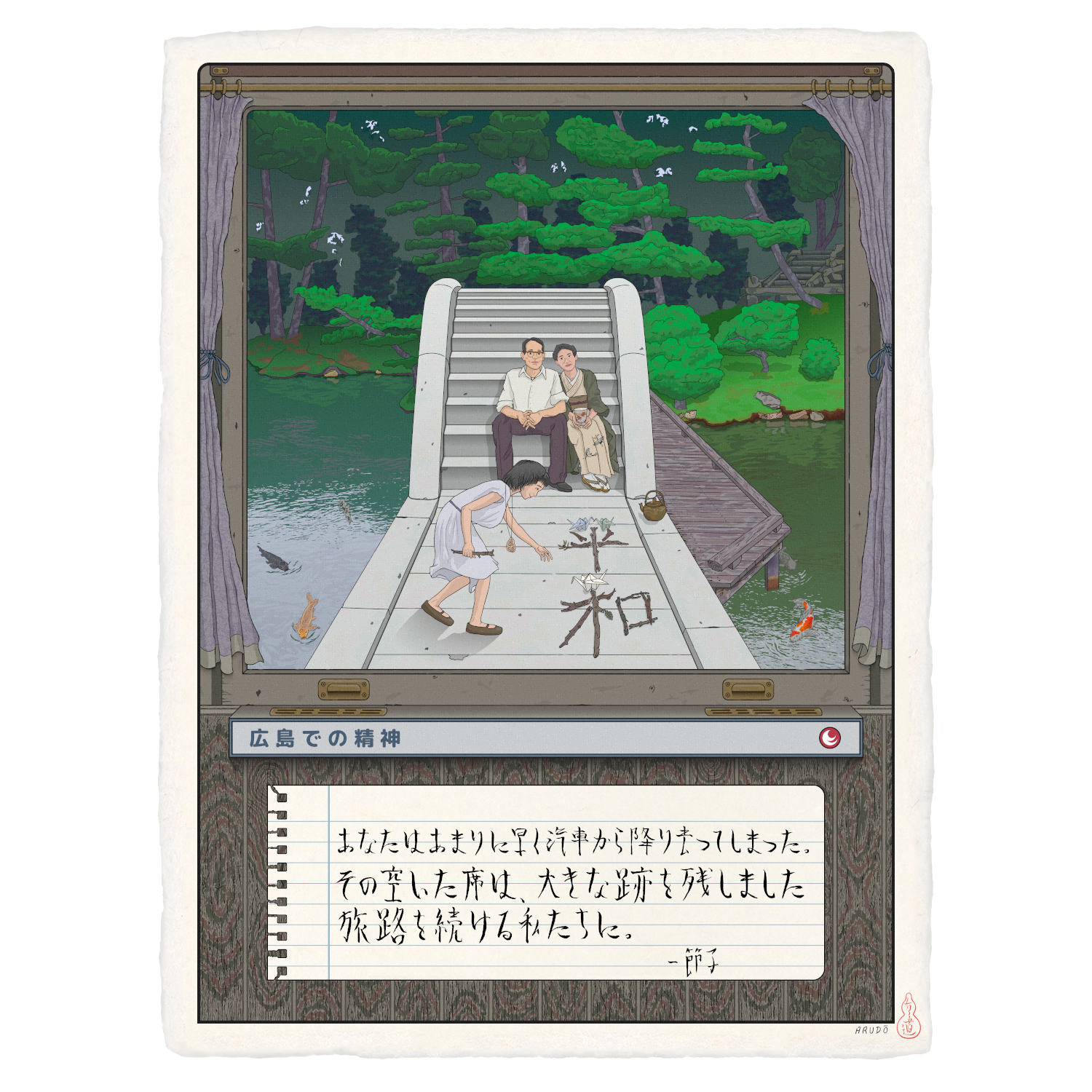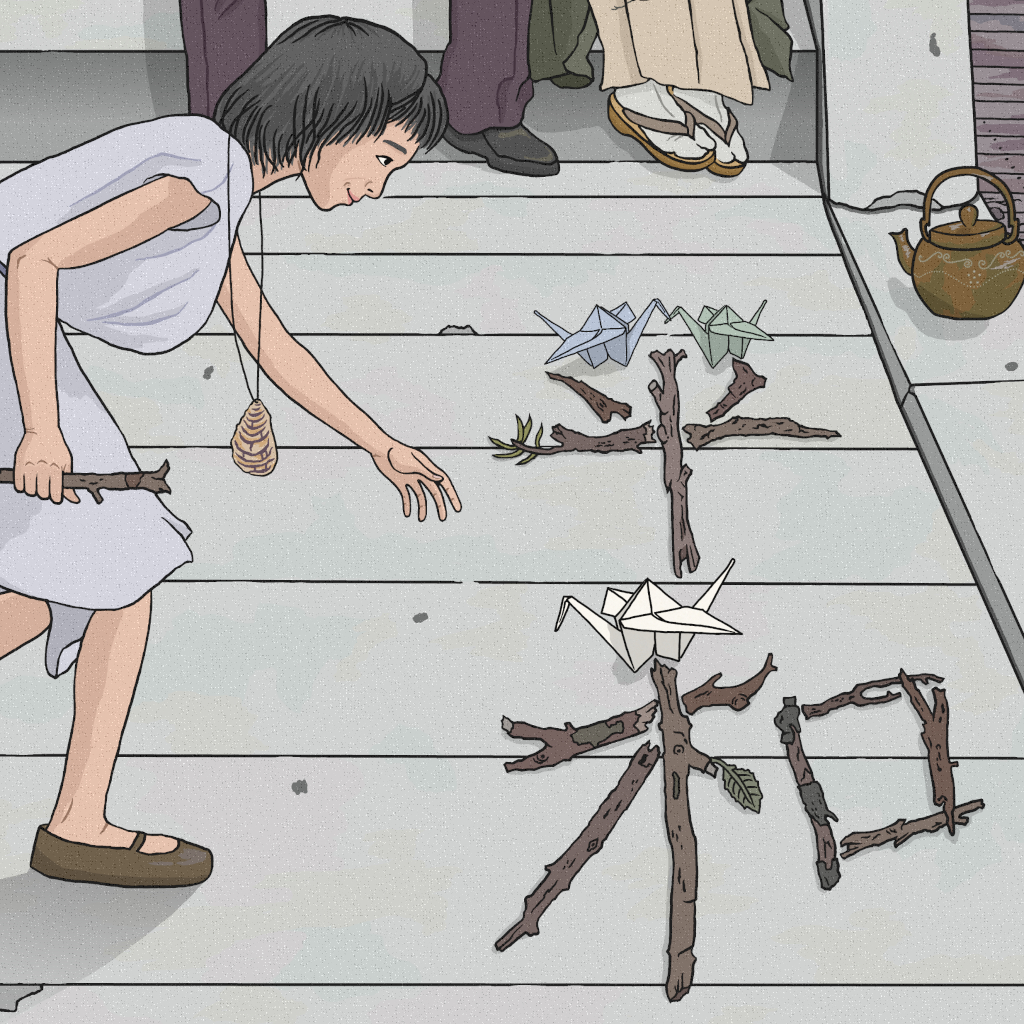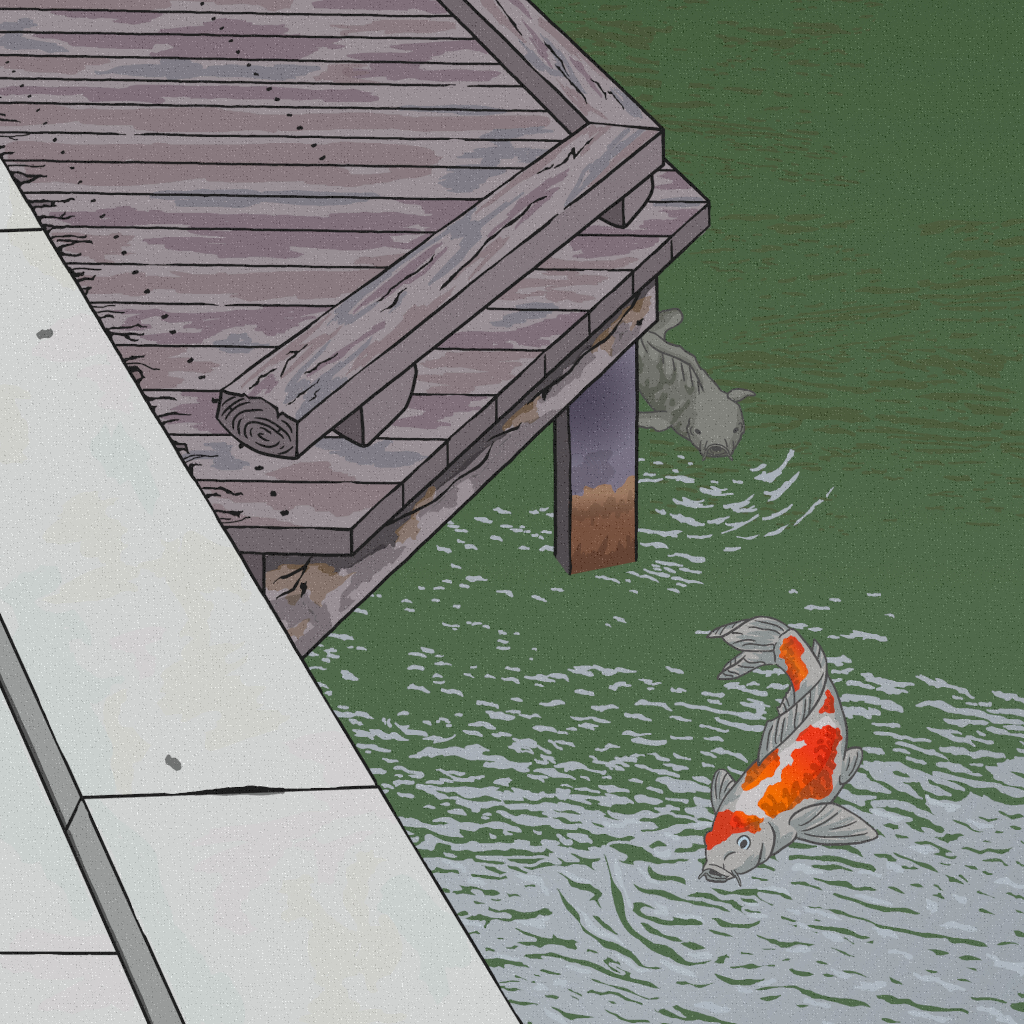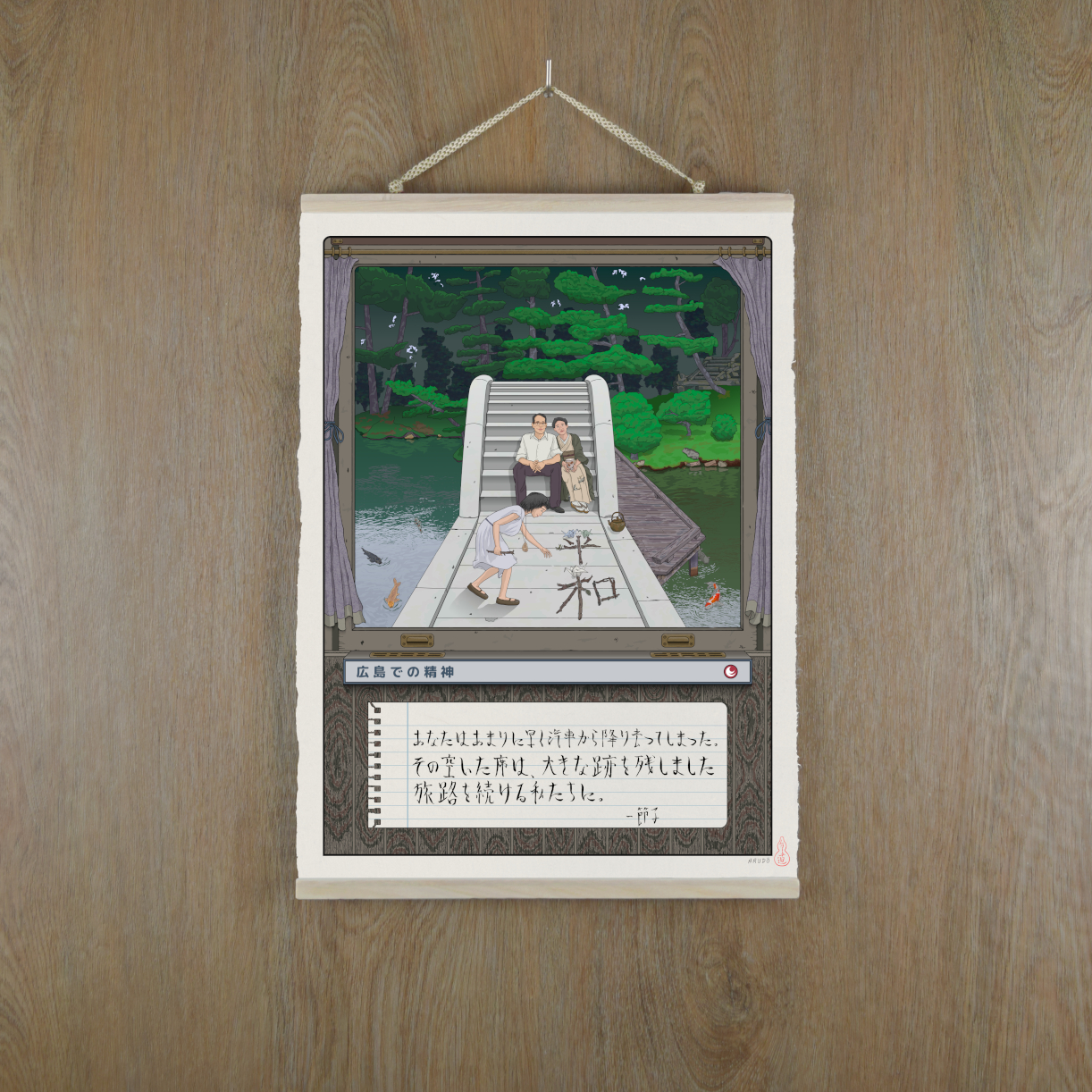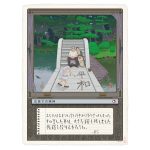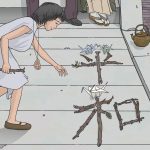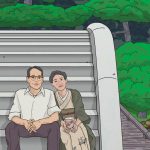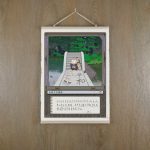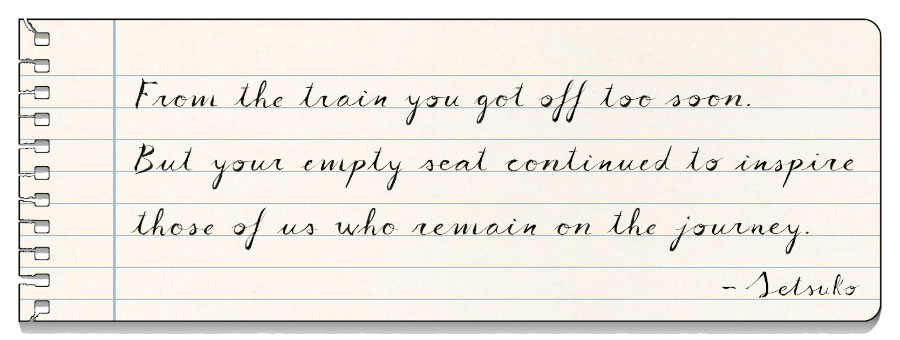
‘Spirit in Hiroshima’
11,00€ – 33,00€
Art print on handmade Japanese paper.
Natural fibers and elements are used in the creation process, without the presence of acids or bleaches.
The pigments used, through the giclée process, are long-lasting and of archival quality.
Although the print can be framed, perhaps the best way to enjoy the appearance and texture of Japanese paper is to hang it as a scroll. In this way, you can appreciate its virtues not only through sight, but also through touch and hearing.. and even smell!
In this link you will find custom made ‘Scroll Rods’, handcrafted using Paulownia wood and authentic Japanese Kakeo —string for hanging scrolls—:
setsuko-monogatari.com/en/hiroshima-ken/scroll-rods
Since it is a translucent handmade paper, it is recommended to hang the print with a white wall background, in order to emphasize the light of the Station and that of the paper itself. If the wall is dark, it is advisable to place a white sheet just behind the Station.
At this Station..
KŌGEI: ‘Miyajima Yaki’ —Miyajima pottery— and ‘Dōchū’ —copperwork—
SYMBOLS: ‘Shukkei-en’ —historical garden of Hiroshima city— and Oyster (prefectural fish)
Word of the prefecture: ‘Heiwa – Peace’
Station founded in.. 

When we are little, we tend to grow up dreaming about what we will become as a grown-up. We are fascinated by that world of adults, it captivates us, it is so different from our own.
We don’t get to understand everything that surrounds it, but our immense curiosity keeps that interest alive.
And we often hear concepts that seem to us so ethereal, so intangible, that our capacity for abstraction, still developing, fails to grasp.
Concepts such as freedom, such as empathy. Concepts such as peace.
The irony of life is that it is precisely at this stage when it seems essential the fact of beginning to assimilate them.
The values we learn during childhood will be the reflection of our adult self. Although not about that innocent desire of what we will become when we grow up, but about who.
In this stage of discovery, we will know love, respect, doubt, fear.
But there is one thing a child should never discover, something should never learn, and that is to survive. None of us, adults, have the right to take them away such moments of discovery.
The lives of thousands of children were cut short during the second great war. Many of them perished instantly, many others a short while after. And some would do it years later, after a grueling battle against a cruel disease.
In every case, the cause was the lack of empathy and humanity of a group of people, whose lives were exactly as valuable as the lives they ignored.
A child’s vision of reality is usually so clear, so crystalline, with hardly any opacity. But, from that moment on, they would begin to know the hideous side of the adult world. Even so, they would also know, as relentlessly as possible, the importance of peace. The importance of treasuring the life we have received, and using it to build a peaceful spirit within ourselves, and a peaceful environment with those around us.
Although to live in peace, it may not be enough to know what took place in the past. Or to tell what, at that time, people may have experienced. Perhaps it is necessary to think about what happened.
When talking about peace becomes a mere empty formality, we tend only to remember the facts, and to forget that it is not an abstract and conceptual matter, but a state of mind. And that the beginning of it all occurs within ourselves, without the need for external stimuli.
If we don’t know the history and the way of thinking of those who preceded us, and of the people who are here with us today, we don’t really know what kind of people they are. We only see that they are different from us. And that leads us to create conjectures that, in turn, end up giving rise to fear, to anger and to hatred.
It is not enough to lament the memories of the past, as if they were part of a distant world. We must retain the true feelings that are found in such memories, and pass them on to the next generations of children, to posterity.
It is extremely difficult to talk about peace if we have not experienced war. But this difficulty must be our ultimate effort of connection with the people who did live through it, with those who do live through it.
And the effort resides in trying to respect the differences in thought and behavior of other people. Being aware, at all times, that we don’t have to share them. But, in spite of that, we accept them. Thus fulfilling the wish of our parents, who put so much effort into our education: that wish that when we would grew up, when we would get older, we would become respectable adults. And we were worthy of the life that we have received, and that we are fortunate enough to be able to preserve.
We have always told children that they must learn the lesson. Did we learn it?


